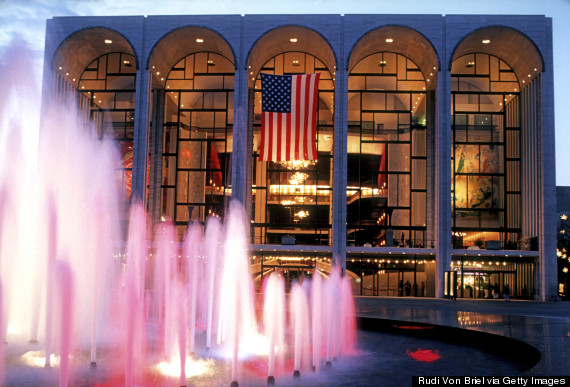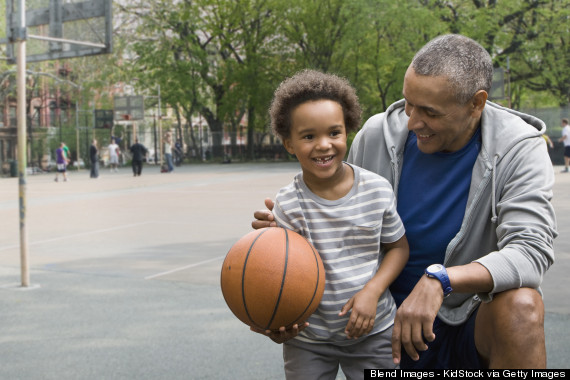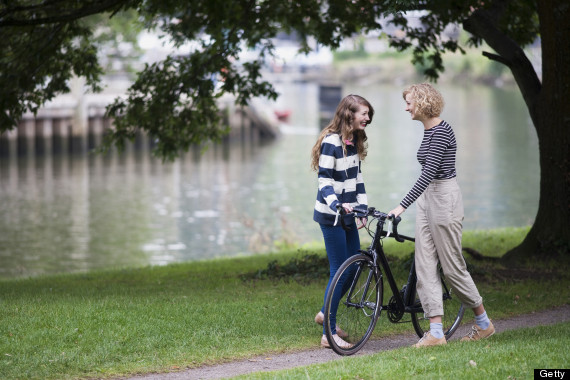Here's the classic trope: Nerves shot and pockets drained, a city stress case heads for the hills. Maybe she leaves a hip city enclave for the equally bohemian vision of a small-scale farm. Maybe he convinces a hard-charging, careerist spouse to finally leave behind the city for a retirement full of whittling and barn restoration. In all instances, the moral of the story is clear: For peace, you leave the city.
But what if that isn't right?
Take for example the case of Frumma Rosenberg-Gottlieb, who ditched her farm in the mountains of Colorado to take up residence in New York City with the goal of studying Torah.
"As I became more sophisticated in my understanding of Torah," she told HuffPost President and Editor-in-Chief Arianna Huffington in the upcoming book, Thrive: The Third Metric to Redefining Success and Creating a Life of Well-being, Wisdom and Wonder, "I realized that mindfulness and a peaceful, balanced soul is indeed an objective in Jewish life, and that the tools for attaining it are subtly woven into the tapestry of Torah knowledge. I learned, for example, that the Hebrew word ‘shalom’ implies not just peace, but also completion, perfection, wholeness. We bless one another with peace; our daily prayers culminate in a request for peace."
Find peace in the über-city? It's not totally nuts, according to Catharine Ecton, ACC, CPCC, MEd, a life coach based in Washington D.C., who specializes in helping clients through moves and transitions.
"The inward journey is more crucial than the outward journey," she tells The Huffington Post. "You need to understand yourself to know what to look for. Some people might feel that the idyllic lifestyle of living in the country [and] the beautiful views is going to give them peace of mind, but my feeling is that this peace of mind has to come from within. You have to do some work to look for it. And that can be anywhere."
That said, there is something about changing locations and style of living that can be truly transformative: "Changing location is a real catalyst for self-discovery, because you're testing what you're really all about," says Ecton, who moved more than 10 times during her husband's career with the State Department -- from big cities like Tokyo, Paris and Bogotá to small Japanese villages in Hokkaido prefecture.
"I like the smorgasbord life of a lot of things available, a lot of possibilities -- that gives me the possibility of rediscovering myself on several levels," says Ecton, explaining why she prefers big cities. "Rural situations, for me don't provide enough stimulation."
She isn't alone. Many people move to cities seeking fulfillment and even peace. What's more, they find it.
Here are a few ways that moving to the city can help you find inner peace.
City life is hard

To be sure, there are some drawbacks to urban life: People from cities are more prone to poor mental health, including anxiety and chronic stress. But that doesn't mean a city life can't be the calm, happy and connected existence of your dreams -- as long as you recognize and take on the challenge.
"Life can be very lonely and isolating [in a big city] and that often causes people to search for core values," the Rev. Winnie Varghese, rector at St. Mark's Church-in-the-Bowery, located in New York City's East Village, tells HuffPost. "People usually come to a big city with a goal. You either move because there's something you're leaving or seeking. Most of us, when we find it, it isn't as satisfying as we thought it would be. People ask the ultimate question when things are hard: You're truly confronted with 'who are you' and 'what do you mean to be about?'"
What's more, Varghese explains, the sublime architecture of the city can also have an impact on residents. "There's something about the overwhelming nature of the landscape, even though it's a built environment -- you have to make peace with it," she says.
While other environments provide quiet for you, in the city you have to find it for yourself. And doing so, along with answering the hard questions, can provide a deep level of fulfillment.
Cities offer unparalleled opportunities to see the arts.

Orchestras, museums, galleries and ballet companies; street graffiti, spoken word and busking -- no matter what kind of artistic expression sets your soul aflame, chances are it's more likely to be on offer in a city than a small town.
"Public art humanizes the built environment and invigorates public spaces. It provides an intersection between past, present and future, between disciplines, and between ideas," explained Americans for the Arts' Public Art Network Council. "It reflects and reveals our society, adds meaning to our cities and uniqueness to our communities."
An ongoing case study in the industrial metropolitan borough of Gateshead, England has found that a single piece of public art, a statue called Angel of the North, made 72 percent of residents feel good when they saw it and it made 64 percent proud of their neighborhood, reported The Guardian.
Art doesn't just connect us to the environment -- it connects us to each other, as Michelle Obama explained during a speech at the G-20 economic summit in 2009. "It's through this constant exchange -- this process of taking and giving, this process of borrowing and creating -- that we learn from each other and we inspire each other. It is a form of diplomacy in which we can all take part," she said.
For spiritual seekers, cities may offer more to explore.

While small towns often have greater religiosity than metropolitan areas, the vast array of spiritual offerings in a city remain unparalleled. Want to learn more about a lesser-known Buddhist tradition? Yearning for a traditional synagogue that supports marriage equality? A big city is your best bet.
"Every kind of person you can imagine is represented on Sunday morning. We have freelancers and artists, Wall Street and law firm partners, people on public assistance and living in group homes for those suffering from mental illness," explains Varghese. "Overwhelmingly we have people who were not raised in church or who were, but didn't like it. These are people asking questions about who they are in the world and looking to connect their interests with what makes a just society."
"To have the diversity we have, we need a community that is generous and kind and open. We are intentionally very welcoming of LGBT persons, transgendered persons," she says. "We don't need people to hide who they are."
Acceptance is a big part of both spiritual exploration and city life, but it's also a characteristic of communities that promote strong mental health.
What's more, those who attend religious services have longer life spans, which researchers believe is due to the social connections fostered in a faith-based community. If more people feel welcomed into a faith, that benefit is extended to a greater number of people.
The city might be where your family goes

There is also, of course, the draw of grandchildren, for which many a grandparent will endure even the dreariest city tableaux.
For those looking to downshift after a long career, moving from the childrearing-oriented suburbs to the adult atmosphere of a city makes sense for many older couples. It's a good way to be near adult children -- and to avail oneself of the many amenities (food delivery, doormen, public transportation) that help mitigate the decreased mobility of later years.
The New York Times profiled a recently retired couple, the Fuocos, who moved to Philadelphia from a nearby suburb with the twin goals of spending more time with their pregnant daughter and making life a little more convenient.
"We walk everywhere, and the transit system allows seniors to ride free, so if I get tired, I just get on a bus,” Mrs. Fuoco said. “We are near Tina, so what could be better?”
Cities make it easy to move your body

Physical activity and walking are certainly possible anywhere, but nowhere is car travel more inconvenient than in a city. If the fastest way to get from point A to B involves some pedestrian maneuvering, walking quickly becomes just a fact of daily life. And because you have to seek out your daily dose of green scenery, a trip to the park is also occasion to get your 30 minutes of moderate activity in.
With that in mind, it's no surprise that the fittest place in America is a city: Minneapolis beats out the sticks, with 86 percent of residents reporting at least one workout in the previous month.
Arianna Huffington and Mika Brzezinski are taking The Third Metric on a 3-city tour: NY, DC & LA. Tickets are on sale now at thirdmetric.com.
